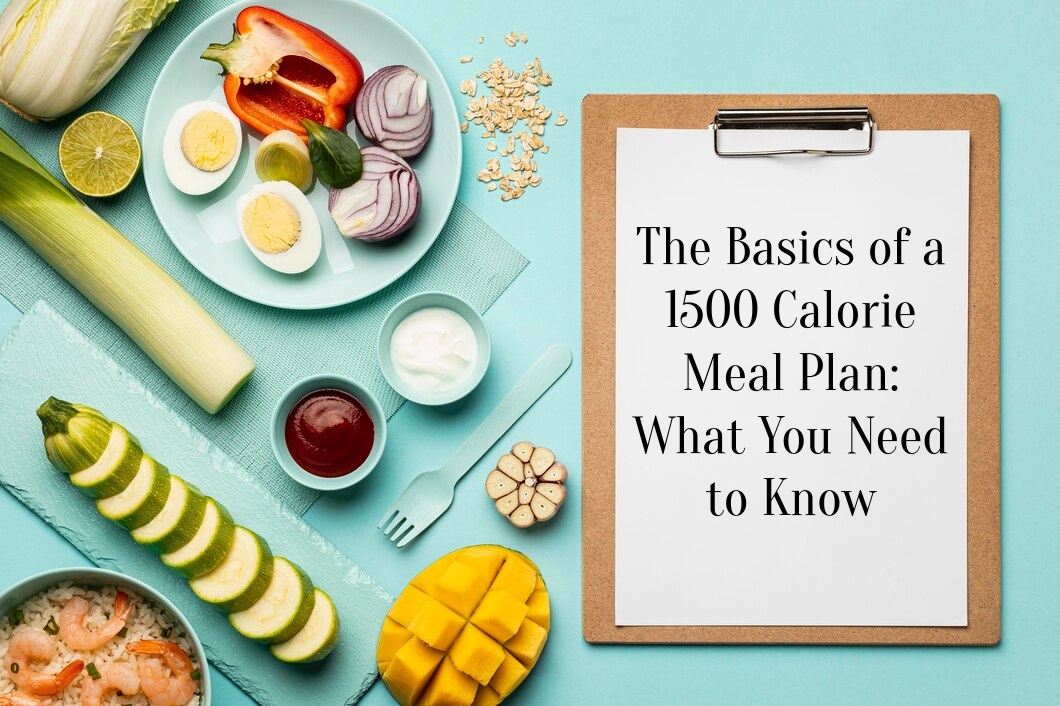In a world full of diet plans, one that often stands out for its simplicity and effectiveness is the 1500 calorie meal plan.
It’s a concept that doesn’t require fancy superfoods or complicated recipes but focuses on the fundamental principle of calorie control.
If you’re looking to shed a few pounds, maintain your current weight, or just adopt a healthier eating pattern, understanding the basics of a 1500-calorie plan is a great place to start.
Why 1500 Calories?
Before we dive into the nitty-gritty of this meal plan, you might wonder, why 1500 calories? Well, it’s a reasonably balanced number that can work for many people.
A 1500-calorie plan provides enough energy to keep you fueled throughout the day while creating a calorie deficit, making it conducive to weight loss.
Personalisation is Key
The first thing to know about a 1500-calorie meal plan is that it’s not one-size-fits-all.
Your daily calorie needs depend on various factors, including your age, gender, activity level, and metabolic rate.
Before starting any new diet, it’s wise to consult with a healthcare professional or registered dietitian to determine the calorie intake that’s right for you.
They can provide personalised guidance to ensure you’re meeting your nutritional needs while reaching your goals.
Balanced Nutrition Matters
Creating a 1500 calorie diet plan isn’t just about cutting calories; it’s about eating balanced meals. Your plan should include a mix of macronutrients: carbohydrates, proteins, and fats.
Aim for a distribution that aligns with your dietary preferences and needs. For instance, if you’re following a low-carb diet, your 1500 calories might consist of a higher proportion of fats and proteins.
The Importance of Portion Control
One of the key principles of a 1500-calorie meal plan is portion control. It’s not just what you eat but how much you eat that matters.
To stay within your calorie limit, use measuring cups, a food scale, or simply practice mindful eating.
Pay attention to portion sizes, and you’ll be surprised at how satisfying and nutritious your meals can be, even on a calorie-restricted diet.
Smart Food Choices
While it’s possible to fill your daily 1500 calories with fast food and sugary snacks, it’s not the best approach for your health or satiety.
Instead, opt for nutrient-dense foods that provide essential vitamins, minerals, and fibre.
Incorporate plenty of fruits, vegetables, lean proteins, whole grains, and healthy fats into your meals.
These foods not only help you stay full longer but also support your overall well-being.
Meal Planning and Prepping
Success on a 1500-calorie meal plan often hinges on planning and preparation.
Take some time each week to map out your meals, create a shopping list, and prepare ingredients in advance. Having healthy options readily available can prevent impulsive, calorie-laden choices and make sticking to your plan much more manageable.
Snack Smartly
Snacking can be a downfall for many when trying to maintain a calorie goal.
However, it doesn’t have to be the enemy. Include snacks in your 1500-calorie meal plan, but choose wisely. Opt for nutrient-rich options like Greek yogurt, nuts, or fresh fruit. These snacks can curb your hunger between meals without breaking your calorie bank.
Stay Hydrated
Sometimes, thirst can masquerade as hunger. To avoid unnecessary snacking, stay well-hydrated by drinking plenty of water throughout the day.
Herbal teas and infused water can add variety to your hydration routine.
Tracking Your Progress
Finally, tracking your progress is an essential aspect of any successful diet plan. Keep a food journal, use a mobile app, or take photos of your meals.
This not only helps you stay accountable but also allows you to make adjustments if needed.
Remember, consistency is key when it comes to achieving your health and fitness goals.
In conclusion
A 1500 calorie diet can be a straightforward yet effective way to manage your weight and improve your overall health.
By personalising your calorie target, focusing on balanced nutrition, controlling portions, making smart food choices, and practising meal planning and prepping, you can set yourself up for success.
It’s about more than just counting calories; it’s about making sustainable, healthy choices that lead to a happier, healthier you.
So, are you ready to embark on your journey to better health with a 1500-calorie meal plan?


